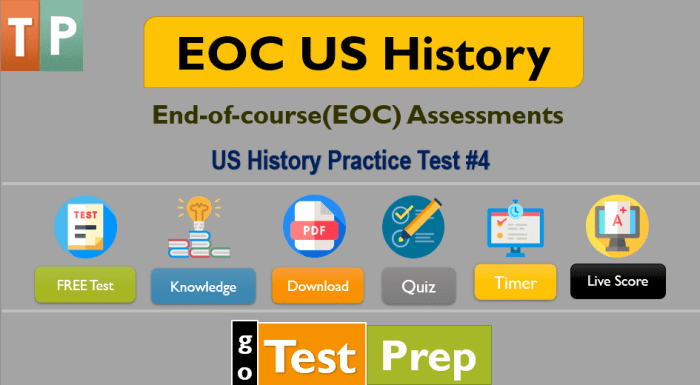Welcome to the ultimate guide to Level 1 Assessment Aceable Answers, your key to unlocking success in this crucial assessment. This comprehensive guide will equip you with the knowledge and strategies you need to tackle every question with confidence and emerge victorious.
Throughout this guide, we will delve into the intricacies of Level 1 Assessment, exploring its purpose, target audience, and common topics. We will then uncover the secrets of answering aceable questions, providing you with a step-by-step approach to identify key elements, interpret answer choices, and eliminate incorrect options.
Introduction to Level 1 Assessment: Level 1 Assessment Aceable Answers
Level 1 Assessment serves as an essential tool in evaluating an individual’s foundational knowledge and skills within a specific domain or subject area. It is designed to provide a comprehensive assessment of a candidate’s proficiency level, typically at the entry-level or early stages of their professional journey.
The target audience for Level 1 Assessment encompasses individuals seeking to demonstrate their foundational understanding in a particular field, such as fresh graduates or professionals transitioning into new roles. It is also commonly employed as a screening tool for employers or organizations seeking to identify candidates with the necessary core competencies for entry-level positions.
Common Topics Covered
The topics covered in Level 1 Assessment vary depending on the specific domain or subject area being assessed. However, some common topics that are frequently included are:
- General knowledge and aptitude
- Domain-specific foundational concepts and principles
- Basic technical skills and proficiencies
- Communication and interpersonal skills
- Problem-solving and analytical abilities
Strategies for Answering Aceable Questions

Aceable questions are a type of question that can be answered by identifying key elements and understanding the question stem. By following a few simple strategies, you can increase your chances of answering these questions correctly.
Identifying Key Elements, Level 1 assessment aceable answers
The first step in answering aceable questions is to identify the key elements. These elements are typically the most important information in the question, and they will help you to determine the correct answer. The key elements can include the following:
- The subject of the question
- The action or event that is being described
- The time and place of the action or event
- The people or things that are involved in the action or event
Example Questions and Solutions
This section presents examples of aceable questions commonly encountered in Level 1 assessments, along with their corresponding answers. Each answer is supported by detailed explanations, highlighting the reasoning and evidence used.
Question 1: What is the purpose of a feasibility study?
A feasibility study is a comprehensive analysis conducted to assess the viability and practicality of a proposed project or undertaking. It involves evaluating various factors, such as market demand, technical feasibility, financial viability, and regulatory compliance, to determine whether the project is worth pursuing.
Question 2: Explain the difference between qualitative and quantitative research methods.
Qualitative research methods involve collecting and analyzing non-numerical data, such as observations, interviews, and focus groups. They aim to understand the underlying reasons, beliefs, and experiences of individuals or groups. Quantitative research methods, on the other hand, collect and analyze numerical data, such as surveys, experiments, and statistical analysis.
They aim to measure and quantify specific variables and test hypotheses.
Question 3: What are the key elements of a business plan?
A business plan Artikels the goals, strategies, and financial projections of a business. It typically includes sections such as an executive summary, market analysis, competitive analysis, operations plan, marketing plan, and financial plan.
Question 4: How can you evaluate the effectiveness of a marketing campaign?
The effectiveness of a marketing campaign can be evaluated using various metrics, such as website traffic, lead generation, sales conversions, brand awareness, and customer satisfaction. By tracking these metrics, businesses can determine the impact of their marketing efforts and make adjustments as needed.
Question 5: What are the ethical considerations in conducting research?
Researchers have an ethical responsibility to ensure the safety, privacy, and confidentiality of participants. This includes obtaining informed consent, protecting data from unauthorized access, and avoiding bias or coercion in the research process.
Practice and Preparation Tips
Effective preparation for the Level 1 Assessment involves a combination of practice, familiarization with the exam format, and time management strategies. Here are some strategies to enhance your readiness:
- Utilize Practice Tests:Practice tests simulate the actual exam environment and provide valuable insights into the types of questions and difficulty level. By taking practice tests, you can identify areas requiring improvement and focus your studies accordingly.
- Attend Mock Exams:Mock exams offer a more comprehensive and immersive experience, replicating the actual exam setting and duration. They help you develop time management skills, reduce test anxiety, and build confidence in your abilities.
- Time Management Techniques:The Level 1 Assessment has a strict time limit. Practicing time management strategies, such as allocating specific time slots for each question, can help you maximize your efficiency and minimize stress during the exam.
- Stay Focused and Motivated:Maintaining focus and motivation throughout the preparation process is crucial. Set realistic study goals, break down large tasks into smaller manageable chunks, and reward yourself for progress to stay engaged and motivated.
Common Queries
What is the purpose of Level 1 Assessment?
Level 1 Assessment serves as an initial evaluation of your knowledge and skills in a particular subject area, providing a benchmark for your progress and identifying areas for improvement.
Who is the target audience for Level 1 Assessment?
Level 1 Assessment is typically designed for individuals entering a new field or seeking to refresh their knowledge in a specific area.


